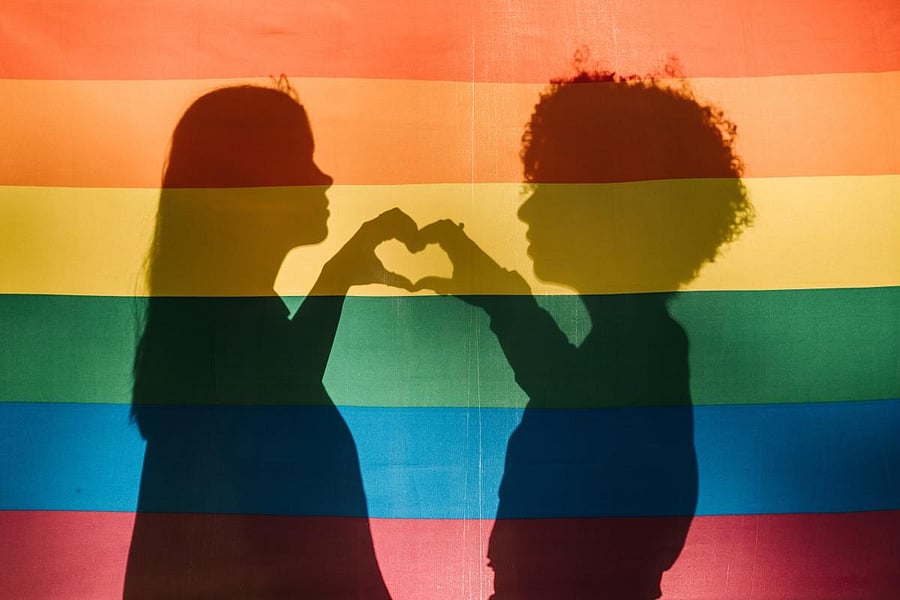
When he was still in school, Aditya, who is now a poet and an LGBT activist, was on the verge of attempting suicide. “I had written a letter as well. I was called “flamboyant” and effeminate, and some classmates even physically confronted me while no one was home to verbally abuse me. I may presume that even my teachers were aware of everything as I once overheard several teachers mention that I am not the only one and that similar things had happened before. Aditya claims that despite that, nobody took any action. Aditya’s fifth-grade teacher instructed him to “act like a man.” She told me that as I grew up, I would have to provide for my family financially, he adds.
Our school system should promote the idea that love is THE answer to all injustices, whether they be social, economic, or historical. God spoke only one language throughout the entirety of creation. According to numerous reports, schools have failed to provide children with a safe environment. Two examples include 10 Kolkata girls who were forced to “confess” their homosexuality and a 15-year-old in Tiruchirappalli who killed herself after being taunted by her peers for being “feminine.”
The third gender is suggested to be included in formal education through the use of gender-neutral clothing, transgender-inclusive curricula, secure restrooms, and measures to reduce gender-based violence, according to a new NCERT guidebook. Under the leadership of Jyotsna Tiwari, the Department of Gender Studies at NCERT has put together a brand-new 16-person team to create the draft manual, Integrating Transgender Concerns in Schooling Processes. Can a curriculum eliminate the persistent bias and discriminatory attitudes at work here?
Sonal Kapoor, the founder and director of the Delhi-based Protsahan India Foundation, who works with immigrant youth, observes that discrimination and violence against LGBT children and youth are not new occurrences. “Our teachers need to be educated in concepts that make them gender “aware” in order to aid pupils in developing knowledge to recognise and detect patterns, offenders, and situations of violence,” she believes. Gender inequality and violence reinforce each other. We must also remember that there are gendered hurdles to teen help-seeking because schools are governed by people who belong to the same society as the students who attend them, she adds.
The realisation that the mind is more important than anything else could contribute to the eradication of the gender, class, and caste disparities that are a fundamental outcome of society’s structure. “The little kids, empowered by the knowledge of making a difference by putting the best of their rational faculty, give some hope for humanity,” she adds.
According to Tagore, every newborn carries the message that God has not yet become weary of humanity. In light of this, our future’s total development will be ensured if the education system can offer a space devoid of discrimination.
By simply passing laws or regulations, one cannot get rid of the rigid ideas of gender, class, and caste. It has to be applied in actual life. Adults in educational institutions need to be made aware of this. We can only have any hope when both parents and teachers recognise the importance of such a place and are equally willing to put in the time and effort necessary to provide it for the following generation.
The idea of love must be liberated from the typical male-female equations of warmth, intimacy, and pleasure. It must learn to accept a broader sense of inclusivity and compassion for the other that goes beyond gender, caste, creed, and religion. According to Associate Professor Saswata Bhattacharya of Deshbandhu College, University of Delhi, only that can provide us with some hope for a better tomorrow.
In 2007, all secondary and higher secondary schools were scheduled to start the Adolescence Education Programme (AEP), according to a statement released by the federal government in partnership with NACO, NCERT, and UN organisations. The AEP’s materials included a Flip Chart, Facilitators’ Handbook, Teachers’ Workbook, and Reference Material. However, 13 Indian states wanted an immediate ban because they thought the explicit content meant to provide comprehensive sex education under the AEP was against Indian culture and morals.
The psychological perspective, according to Ankita Jain, a psychologist with a practice in Hyderabad, is that “it is important for one to feel accepted with respect and others to be respectful and non-judgemental during the early years or else they cannot accept their true selves and end up suffering from low self-esteem and feel like an outcast.”
A study conducted between 2003 and 2017 found that bullying had a substantially greater prevalence among LGBTQ adolescents (20.7% vs. 4.4%) and that after controlling for depression, mental health disorders, and family or relationship issues, LGBTQ adolescents had nearly five times the odds of getting bullied.
Ankita emphasises the importance of looking at the transformation from both an attitude and an infrastructure perspective. Genuine systemic changes need to coexist in order to affect our behaviour and psyche. Ankita concludes that “only constructing facilities won’t help; there should be sensitisation campaigns in schools and communities to educate teachers, parents, and children on knowing and accepting all genders — the distinctions, and yet similarities in all of us.”